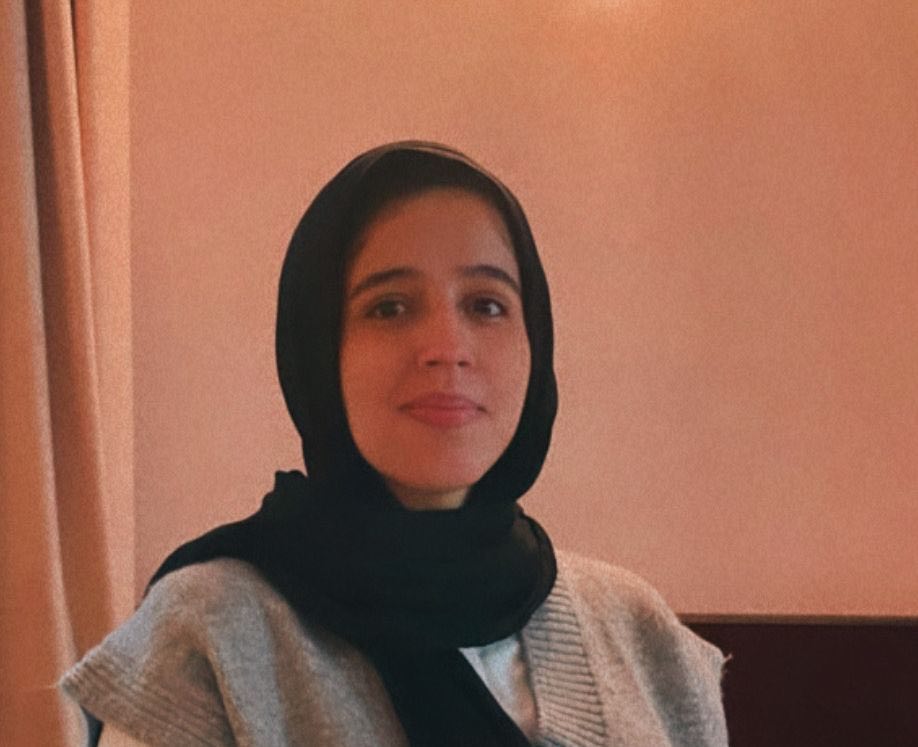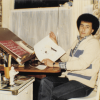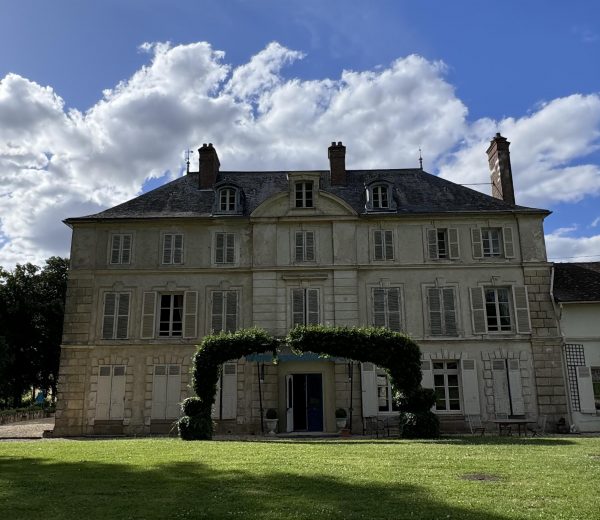The Kingdom of Libya was established after the declaration of independence on December 24, 1951. Its capital was the cities of Tripoli and Benghazi. It was initially called the United Kingdom of Libya until1963, when it was modified to the “Kingdom of Libya” after the abolition of the federal system that combined the three Libyan states of Tripoli, Cyrenaica, and Fezzan. That kingdom continued until the coup led by Muammar Gaddafi on September 1, 1969, which ended a promising period in Libya’s history. An era that may have ended, but we continue to revisit it today with endless questions. Especially the generations that didn’t witness it.
Revisiting History
I spent the last decade searching for answers about my country’s history that I was deprived of for so long. It was and still is a journey that I consider a lifetime research journey. It doesn’t have an expiration date and will continue with me as I grow older. When I created this platform four years ago, I didn’t imagine it to grow to what it is today. However, I am very grateful for everything.
In this article, I am sharing another story linked to Libya’s Kingdom through a critical figure who witnessed that period. I am humbled to have gotten the chance to interview Queen Fatima’s private Secretaryrom from 1968 to 1969. She spent a year in the kingdom, full of many details and memories that she cherishes dearly. I found her name while reading the book by Mr. Adel Dajani, who I interviewed previously, sharing his family’s story in Libya in the 1950s and 1960s. Get to know the details of Mrs. Sahar Rifai’s life in the Kingdom of Libya.
Who is Sahar Rifai? The Kingdom
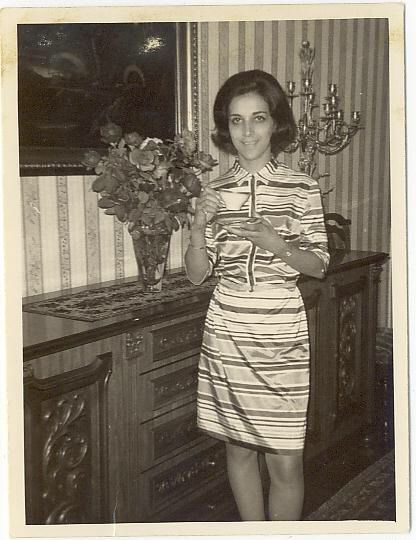
The Private Secretary, Mrs. Sahar Rifai
Sahar Rifai was the Queen’s private Secretary from 1968 to 1969 until the coup d’etat by Muammar Gaddafi, which ended the Kingdom era in Libya. She comes from a political family in Jordan. Her uncle Samir Al Rifai was the prime minister from 1944 to 1963, then held the president of the Senate of Jordan from 1963 to 1965. His son, Zaid Rifai, also held the position of Prime Minister.
Also, her uncle Abdel Monem Rifai was the former Prime Minister of Jordan and then the minister of foreign affairs during her house arrest. He also held the position of special adviser to King Hussein. During the time of exile for Libya’s King and Queen, he worked as the Jordanian Ambassador in Egypt. Mrs. Sahar studied in an English school in Jordan, then went to England and studied at Oxford University.
The previous seSecretaryefore Mrs. Sahar was Hadla Ayoubi. She was a testimony to the lives of both the King and Queen before and after the coup. Mrs. Hadla was a friend of the Rifai family and informed Queen Fatima that she would find the new Private Secretary to start working in 1968, especially since such a position requires a high level of responsibility, excellent communication skills, and trust.
Upon her arrival in The Kingdom
Mrs. Sahar was then informed of her travel date. However, given that she barely knew anything about Libya, she decided to go for two weeks to understand the nature of her role and the Royal family. Mrs. Sahar explained that she received a grand welcoming from the King and Queen upon her arrival. From that moment onwards, she decided to stay and take the position. She arrived first in Tobruk then a private jet took her to Tripoli. After that, she informed her family back in Jordan that she would stay and take the role.
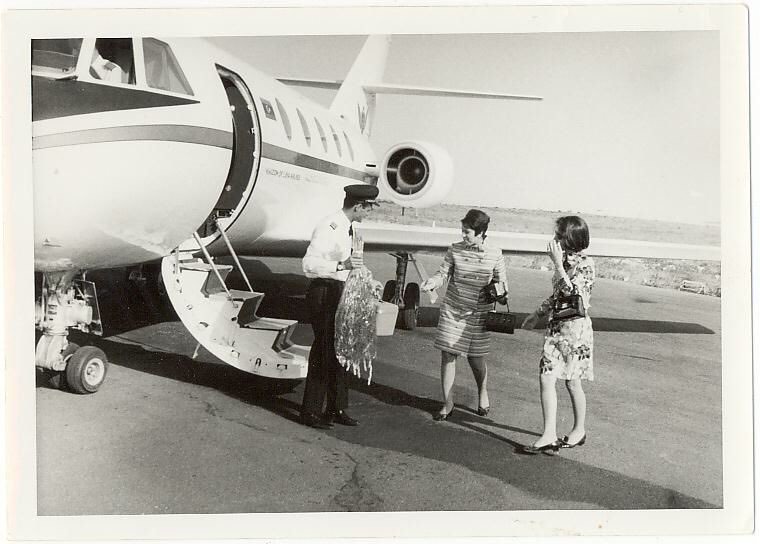
Mrs. Sahar Rifai’s arrival to the kingdom – in 1968
Tobruk Palace was built for formal events and official gatherings. The Royal family spent summer vacations in Tobruk. The routine visits were carried out in Tripoli Palace. However, you may think that the movement between east and west was carried out by private jets, but they were always by car. That meant they passed by many cities in between, like Misuratah and Sirt. It is essential to understand that the palaces where the King and Queen lived were simpler villas than the exact definition of a palace.
Greening The Desert, the kingdom
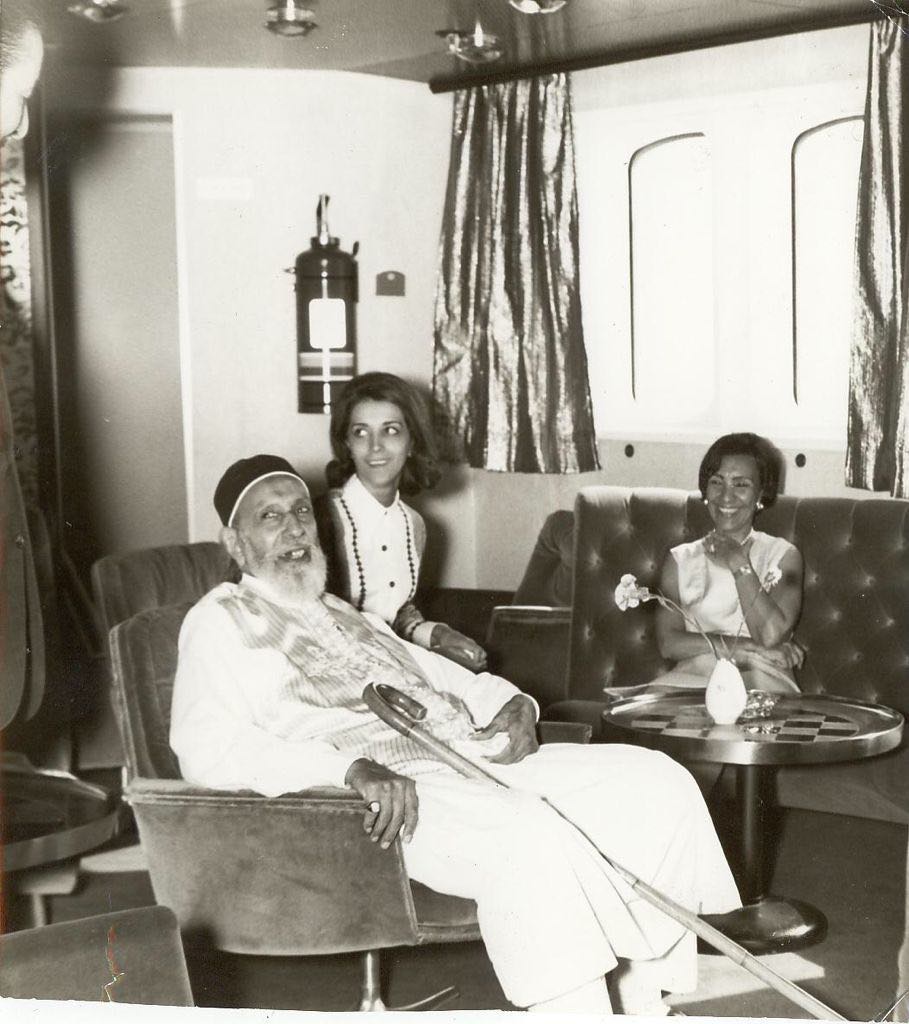
King Idriss, Queen Fatima, and the Private Secretary Sahar Rifai
One of the fundamental aspirations of King Idris was to turn the desert into a green paradise. Following this vision, the kingdom hired Occidental international corporation to work on the Kufra project and they renovated the King’s house in the oasis. The project aimed to grow different crops in a harsh desert environment. The King insisted on this project, and Mrs. Sahar’s fiancé at that time, Mr. Marwan, who is her husband now, was the one who managed this project with the kingdom. The King and the Queen’s time leading the country was many times.
The Trip That Changed Everything the kingdom
Many occasions showed how the King wasn’t around power or luxury during the kingdom era. One was when the King had to go on a trip for medical purposes to Bursa in Turkey. He decided to pay for the journey from his finances and refused to let the state cover the trip’s expenses. The ship was owned by a Greek man named John Latsis, whom you can see in the picture below with his family.
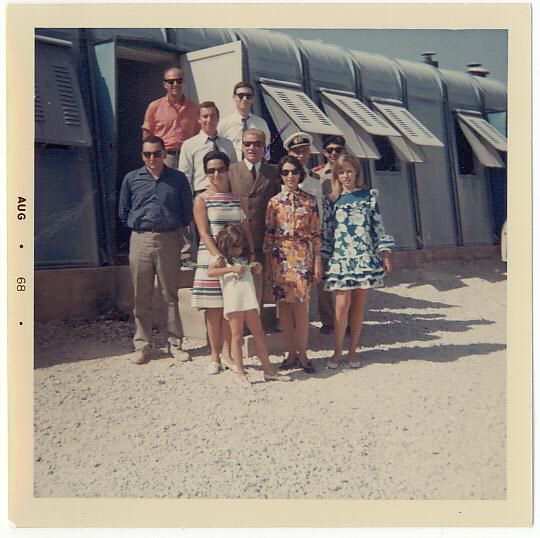
John Latsis, owner of the ship, and his family
Nonetheless, the kingdom
Officials from the kingdom then approved, and they went to Turkey. The welcoming was very sophisticated by the president of Turkey, Cevdet Sunay. He was the president from 1966 to 1973. Then they went to Greece, and King Idris sent a formal letter to Abd Alhamid Alabbar, the head of the Senate, informing him that he wished to resign from his position and return to Libya as a regular citizen to live in Kufra.
No one knew about this decision, and even the Queen had no clue. The decision came suddenly and had nothing to do with the coup that happened later on. At the end of August, while they were still in Greece, the Queen knew of the King’s decision and asked Mrs. Sahar to go to Libya to conduct some tasks. Before the news was announced to Libyans, ”a revolution would embark”, as she stated. However, the revolution was not linked to the coup Gaddafi, and his officers committed. Before Gaddafi took over the country, there was a planned coup against King Idris from within the kingdom circles.
The Dawn of the Coup
When Mrs. Sahar arrived in Tripoli, she was supposed to go within two days to Tobruk. However, the Queen delayed Sahar’s trip to Tobruk for about six days which was supposed to be on September 1, 1969. It marked the day Gaddafi announced Al Fatah Revolution. The night before, the former minister of media in Libya in the kingdom era, Ahmed Salheen Elhuni, was spending the night with Mrs. Sahar and her fiancé.
Later that night,
Mr. Marwan was driving Mrs. Sahar to Swani Palace. Halfway down the road, the car was stopped and not allowed to head to the palace by unknown men. They went back in complete confusion. The following day, Mr. Marwan left to work and heard the coup speech on the radio.
”It was a white coup, not a single bullet was shot”
Mrs. Sahar explaining the nature of the coup’s morning of September 1st, 1969
He drove back to the house and told Mrs. Sahar what he had heard on the radio. She rushed to call the Chief of ceremonies and Chief of staff. They all told her to stay home as they had no idea what was happening. From the balcony, they saw military cars passing by empty and driving back full of people. No sound of bullets and only silence prevailed. It was terrifying. Her fiancé jokingly said, ”they are close to us; we are next”. But the joke turned real a few hours later.
In the afternoon,
Omar Almheishi, a Libyan army officer and a Libyan Revolutionary Command Council member that ruled Libya after the coup d’état, came to her house with three men to arrest her. Mr. Marwan opened the door, and they directly asked for Mrs. Sahar to go with them.
Mrs. Sahar told me she was extremely scared when she heard the door knock. Then, she was taken by the military men, and they didn’t even allow her to prepare herself before leaving. Taken in the back seat of the car with a gun pointed at her head from the back, she thought she would die. She wasn’t the only one arrested; Sulimah, the King and Queen’s adopted daughter, was also arrested.
Mrs. Sahar could steal a glance from the side and saw a truck full of military officers. They were heading to Swani palace, where Mrs. Sahar and her fiancé were not allowed to go the night before. It all made sense at that point. On another note, Omar Almheishi didn’t even know who Sahar and Suleimah were and asked about their identities. After Mrs. Sahar confirmed their identities, he announced they were both on house probation.
The Shocking New Reality of The kingdom
The term ”house probation” was strange and new to Mrs. Sahar, especially since she was in her early twenties when she got arrested. He explained what it meant and then led them inside the palace. They entered, and officers asked them in which room they wanted to stay. Mrs. Sahar asked to stay in her room while they marked the rest of the palace with red wax. Gaddafi’s men were shocked that the palace was very simple and couldn’t comprehend the reality.
Mrs. Sahar said that she and Sulimah only lived on consuming fried aubergines and potatoes for two months while arrested. Also, her family didn’t know she was under house arrest. They saw the famous picture of the King leaving the ship and thought Mrs. Sahar was with him by default. However, three days later, the Rifai family read in a French magazine that King Idris asked Egypt’s president Jamal Abel Nasser that he only wanted Sahar and Suleimah to be released.
The Release of the Private Secretary
When the Rifai family knew that Mrs. Sahar got arrested, negotiations began with many regional leaders. The Royal family of Jordan interfered. Yasser Arafat, President of the Palestinian National Authority from 1994 to 2004, interfered heavily in negotiating release requests. His interference caused the eventual release. After that, Gaddafi and Abdulsalam Jalloud went to the palace accompanied by a significant military force. But Mrs. Sahar didn’t even know who they were as she was disconnected from the world.
Only the Sudanese guard was the one who brought the information to Mrs. Sahar. They lived in harsh conditions, and Mrs. Sahar asked the Jordanian Ambassador to come and explain everything to him. Gaddafi was very focused on the relationship of the King with the Al-Shalhi family. Al-Shalhi family – the wife and children of the late Ibrahim Al-Shalhi, special advisor to King Idris – were the closest people to the King. For example, Lutfia and Omar Al-Shalhi seized control of many great business deals during the kingdom period and were highly leveraged.
After the release,
Suleimah went to the King and Queen in Egypt, where they were sent to exile. Yasser Arafat, or Abu Ammar, phoned Mrs. Sahar’s mother and was shocked that she didn’t believe the president was calling her. He told her ”I am Abu Ammar” and she replied ”Abu Ammar of Palestine?” and he laughingly confirmed. Her fiancé was also kept hostage in the Al Waddan hotel in Tripoli. He was sent to Jordan and explained Mrs. Sahar’s situation to her family.
——————————————————
Mrs. Sahar explained that Gaddafi and his men were not aware of the environment in Libya. For example, on their way to the airport, Gaddafi’s men missed the road many times because they didn’t even know where it was exactly. In addition, they were full of hate and grudged toward the King that they didn’t believe he lived a simple life when they entered the palace.
For example, when they entered the office of the King, they saw a bottle of medicine, and one of the men sarcastically said, ”Look, the king consumes alcohol, and Mrs. Sahar corrected him right away and told him it was a medicine”. It is essential to understand that Swani Palace was not used much by the Royal family, yet it was like any other ordinary house in Libya. At some point, Gaddafi’s men asked for pictures of the Queen wearing a swimming suit. The only thing Mrs. Sahar managed to save was pictures, but Gaddafi and his people took over all the King and Queen’s personal belongings.
Not Fully Released
Gaddafi’s men brought the media to talk with Mrs. Sahar after she was released so she could falsely speak about the King and Queen, but she refused. Afterward, she went to the airport, escorted by Gaddafi’s men, the Jordanian Ambassador, and her personal belongings. The plane took off from Tripoli to Jordan. However, another surprise happened. When the aircraft was above Benghazi, it got ordered to land. Mrs. Sahar was the only person asked to leave the plane, and airport workers told her that her belongings could not go with her.
Further Delay…
They took her things from her, and she told them she didn’t want to take anything. All she demanded was to go home. She then took a plane to Beirut, Lebanon, and from there to Amman, Jordan. It was a total of 13 hours of delay. Through the horrible arrest experience, Mrs. Sahar lost about 14 kilos.
Sadly, her family didn’t recognize her when she arrived in Amman. The day after her safe arrival, the King and Queen called her to check on her. After that, she spent about nine years with Egypt’s King and Queen every Ramadan. She remembers walking with the Queen in Cairo and how the Queen told her how good freedom felt.
A Life Spent in Exile
King Idris and Queen Fatima spent the rest of their lives in a palace in Maadi in Cairo. The Egyptian intelligence watched over them and lived under their mercy. Mrs. Sahar never forgot the humanity of both the King and Queen. Nonetheless, she remembers them with big hearts as down-to-earth individuals and loved by all means. During my interview with Mrs. Sahar and when I asked her to describe them, I could sense the profoundness of her feelings towards them and how she truly loved them.
”They were truly king and queen without the crown”
The circle around the King may have harmed him, but he didn’t mean any harm to Libya or the Libyans. There was this story when a man ran after the King’s parade, the guards stopped and picked up the old man. He had a paper with him to give to the King. After that, the King noticed the old man and asked about him. Mrs. Sahar was then asked to check on the case and to bring him to see the King. The old man handed the letter to the King, and he answered the man’s request. the kingdom
The Simplicity of The King & Queen
Libyans don’t know the humanity and authenticity of King Idris and Queen Fatima. Gaddafi managed to erase everything related to the kingdom of Libya. By erasing it from the memories of Libyans who witnessed that period and never letting it be in the memories of those born after 1969. Sadly, Gaddafi’s regime brainwashed many generations, and we can see it today.
Libyans barely knew anything about the kingdom, including the King and Queen. Life was straightforward for them, Mrs. Sahar added. For example, breakfast was not sophisticated; the King liked having tea with dates, honey, and butter. They had meals together as one family and spent afternoons in the tent. The Queen could make the tea for the King. Life was utterly simple and beautiful at that time.
Queen Fatima, while making afternoon tea for King Idris, accompanied by Mrs. Sahar Rifai.
But There Was Always a Price to Pay
Gaddafi captured many people linked to the kingdom. Those who were imprisoned and released under certain conditions. For example, Gaddafi put Abdul Aziz Shennib, a political opponent, in jail for about five years. The state of his release was to be the Ambassador of Libya in Jordan. The surprising appointment was not a gesture of reconciliation with the old regime. He was appointed an ambassador so he could assassinate King Hussein. Mr. Shennib couldn’t eventually do it and informed King Hussein of the plot against him. Following that, he held a conference and asked for political asylum in Saudi Arabia.
Mr. Aziz had always asked Mrs. Sahar to open one of Um Kalthoum’s famous songs, Alatlal. This song had a verse that said, ”Give me my freedom, I gave what was left”. After the conference, Mrs. Sahar understood why he asked her to open this song specifically. Mr. Shennib lived under pressure he could no longer bear. This only leaves me thinking of the conditions requested by Gaddafi for those once jailed by his regime.
Final Words
Mrs. Sahar today lives with all her memories in the Kingdom of Libya. She feels excellent sorrow that a beautiful era ended way too soon. She hopes this piece could transfer the feelings and beauty of that time to Libyans. Revisiting the past doesn’t mean we regret our present, but we could further use it to understand our reality today and shape our future. I would love to sincerely thank Mrs. Sahar Rifai for her time, openness, and sincere emotions in allowing me to share her story.
